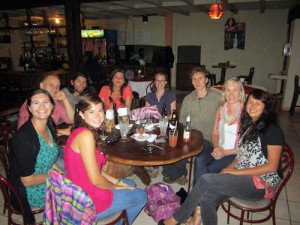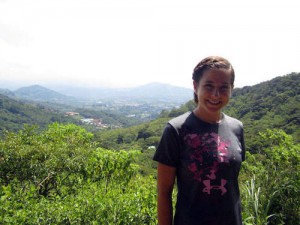While we could talk for hours about the good that service can have on developing your communication skills and discovering the amazing diversity of the world’s cultures, there’s a more pressing topic we need to tackle––your expectations.
No matter what you hope (or want) to achieve in your time as a volunteer abroad, it’s the presence of pre-determined expectations that may well hurt your chances of reaching those goals. It’s unlikely that you think you’ll save the world in just a few weeks or months of giving your time and talents to another community, but we need to create a conversation around why expectations are some of the most dangerous things to carry with you as an international volunteer.
The world doesn't need saving.
Instead of thinking of your service as a “life-saver,” try to see yourself as an observer first––and a contributor second. Make this experience a humble exchange of observation.
 When you start to see how the people at your volunteer project work, don’t be critical of their methods. Your intention should be to learn and help, not to compare their processes to how it’s done where you’re from. You don’t know enough about the culture and the system of working to determine what the best way to work is. If the people and leaders of the community want advice or tips on how to change their operations, they will ask. Let them open the door for this. And if they don’t, simply see this whole thing as an experience, not a chance to “save” another person or country.
When you start to see how the people at your volunteer project work, don’t be critical of their methods. Your intention should be to learn and help, not to compare their processes to how it’s done where you’re from. You don’t know enough about the culture and the system of working to determine what the best way to work is. If the people and leaders of the community want advice or tips on how to change their operations, they will ask. Let them open the door for this. And if they don’t, simply see this whole thing as an experience, not a chance to “save” another person or country.
A former volunteer in Ghana, who was working as a midwife in Koforidua Regional Hospital, quickly discovered how to learn from this cultural immersion in her industry––even though the work was much different than in her home country of Australia.
“My experience in the pre-natal ward, labour ward, and post-natal (lying-in ward) in Koforidua Regional Hospital has been challenging to say the least. It is a busy place! With restricted/limited space and equipment, the experiences and choices of labouring and birthing women is greatly impacted and hence incomparable to back home… It has been an experience I will never forget. It has given me great respect for the strength and resilience of child-bearing women in this country! And reinforced the confronting and often humbling reality of just how much we take for granted.” - Ellen-Claire Terer
These hospitals and medical centers didn’t have all of the same equipment as the ones Ellen-Claire was accustomed to, but they were successful in what they did. As she said, this made it incomparable to her own work back home. The culture had already very much determined the mindset around healthcare, so she was simply there to observe, learn, and assist.
You probably won’t get what you expect.
Unless you’ve volunteered abroad in this exact placement before, you really shouldn’t have a set idea of what the everyday or overall experience will be like. You won’t just be visiting as a short-term tourist; you’ll be immersed in a totally new culture and see what it’s like to live as a part of this community. This is going to be something you’ve never done before.
By leaving your mind open, every situation will be a learning one for you. Picture it as a type of food you’ve never eaten before: If you create an idea in your head of what it will look and taste like, you’re likely going to be disappointed if it’s “different.” But if you simply look forward to trying the something new, whatever it is that arrives on your plate, you’ll see it more as an interesting dish to have. There’s no comparison to what you expected to eat.
Strive to be two things: open-minded and valuable.
 Instead of setting expectations for your experience abroad, set goals for the way you want to communicate with and learn from the people you meet. Allow the community to welcome you in, and help in any way you can. Your work is appreciated, and you’ll receive so much knowledge and personal development in return! If you keep your mind on being as valuable as you can in the time you have to give, you’ll be a positive asset to the project. Put your heart into the program, and support those around you.
Instead of setting expectations for your experience abroad, set goals for the way you want to communicate with and learn from the people you meet. Allow the community to welcome you in, and help in any way you can. Your work is appreciated, and you’ll receive so much knowledge and personal development in return! If you keep your mind on being as valuable as you can in the time you have to give, you’ll be a positive asset to the project. Put your heart into the program, and support those around you.
The best example I can give is our volunteers who work teaching English to young children in schools. As this type of volunteer, you won’t be able to teach perfect English skills to a full classroom of 45 students in Ghana. That’s an unrealistic expectation. But you will be able to help them with proper pronunciation, practicing their current vocabulary, and teaching them more words. This relationship could mean the difference between moving to the next level of education or not for them. You’re one cog in the machine that will help them reach their own goals and grow to be active learners and smart adults––and that’s a great goal to set.
Takeaway
When you boil it down, your volunteer abroad experience is a reflection of the expectations you set for yourself. If you create a pre-conceived idea of what you think your time will be like working and living in another country, you close yourself off to the adventures you could be having. Instead of assuming how your trip will be ahead of time, set goals to be open-minded, respectful, and have an eye-opening immersion into this new culture.